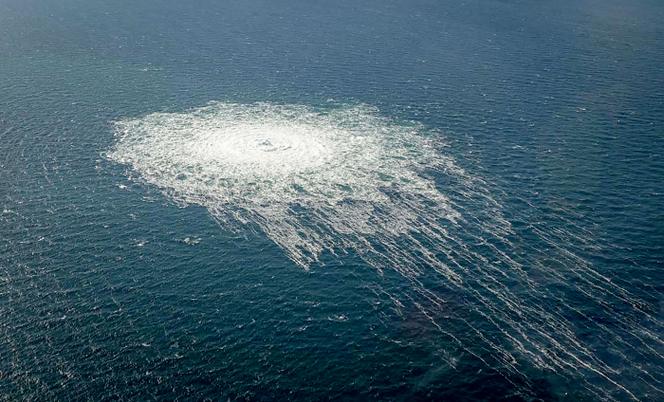
*Editor’s note: On March 4, Russia enacted a law that criminalizes public opposition to, or independent news reporting about, the war in Ukraine. The law makes it a crime to call the war a “war” rather than a “special military operation” on social media or in a news article or broadcast. The law is understood to penalize any language that “discredits” Russia’s use of its military in Ukraine, calls for sanctions or protests Russia’s invasion of Ukraine. It punishes anyone found to spread “false information” about the invasion with up to 15 years in prison.
Dmitry Drize: On the topic of finding those who are responsible for the Nord Stream leaks.
A Nord Stream operator, “Nord Stream AG,” shared its view on the perspectives of damage assessment and the repair of the pipeline. As the company stated, any conclusions can only be made after the gas leak from the damaged pipes is repaired. According to preliminary data, that will happen on Oct. 3. As of today, an exclusion zone has been introduced in the region. Meanwhile, Russia and the West are exchanging accusations of involvement in the leak. Kommersant’s political commentator, Dmitry Drize, doubts that the perpetrator will be found.
Russia is not accusing anyone directly, but it’s obviously hinting that the U.S. is behind the unprecedented accident on the Nord Stream pipeline. The U.S. has clear intent: to remove a serious competitor, to expand the exports of its liquefied natural gas, and, at the same time, to increase its allies’ dependence on the U.S. President Joe Biden’s words come to mind that, if hostilities begin in Ukraine, Nord Stream 2 will come to an end.
Besides, this region is a zone of military control by the U.S. and the North Atlantic Treaty Organization, so how could Russia have been involved there? The Western world, in turn, also hints that Russia could have had its own reasons for such an act of sabotage. Its gas supply is now cut off completely from Central Europe, which makes the European Union and Germany even more accommodating. Additionally, the allies receive a certain signal that something similar could happen elsewhere – say, on the Norwegian extracting platforms.
In other words, remove your sanctions before it’s too late or you’ll perish. Take a look at Italy: the right-wing will come and chase you away, and we’ll win regardless. Moscow angrily refutes all these Western speculations.
The press secretary for Russian President Vladimir Putin, Dmitry Peskov states:
“This region is in the Baltic Sea. And many more planes, ships, and other sea machines spotted there belong to NATO countries. So this news is totally foolish and biased.”
In this regard, it’s quite interesting what verdict will be delivered by the investigation, and whether we will ever learn what really happened. For now, we only have politicized arguments – that all of this was prepared on the state level. And then, see for yourself who benefits from it.
At the same time, it’s not at all easy to physically disable the pipes, which are protected by a special, one-meter-thick concrete coating. Earthquake stations in Denmark and Sweden have also recorded a powerful release of energy near the location of the pipeline.
But if hard evidence of a planned sabotage will be brought to one country or another, it will be, in essence, a direct justification for war. Infrastructure objects are practically the same as a state’s territory.
So, we can’t exclude the possibility that the investigation will take a long time, especially considering that it’s physically impossible to reach the breach until all the gas is out. And then – good luck trying to find evidence at the bottom of the sea.
Germany, meanwhile, has more or less made peace with the prospect of waving goodbye to Russian natural gas. The West turns over a new leaf. It seems that there’s no return to how things were before. Perhaps there are ways to patch up the breaches, but a question arises: Should we even spend money on the pipeline if it will not be operational in the end? It’s a real question, and there’s no clear answer. Yet again.

Leave a Reply
You must be logged in to post a comment.